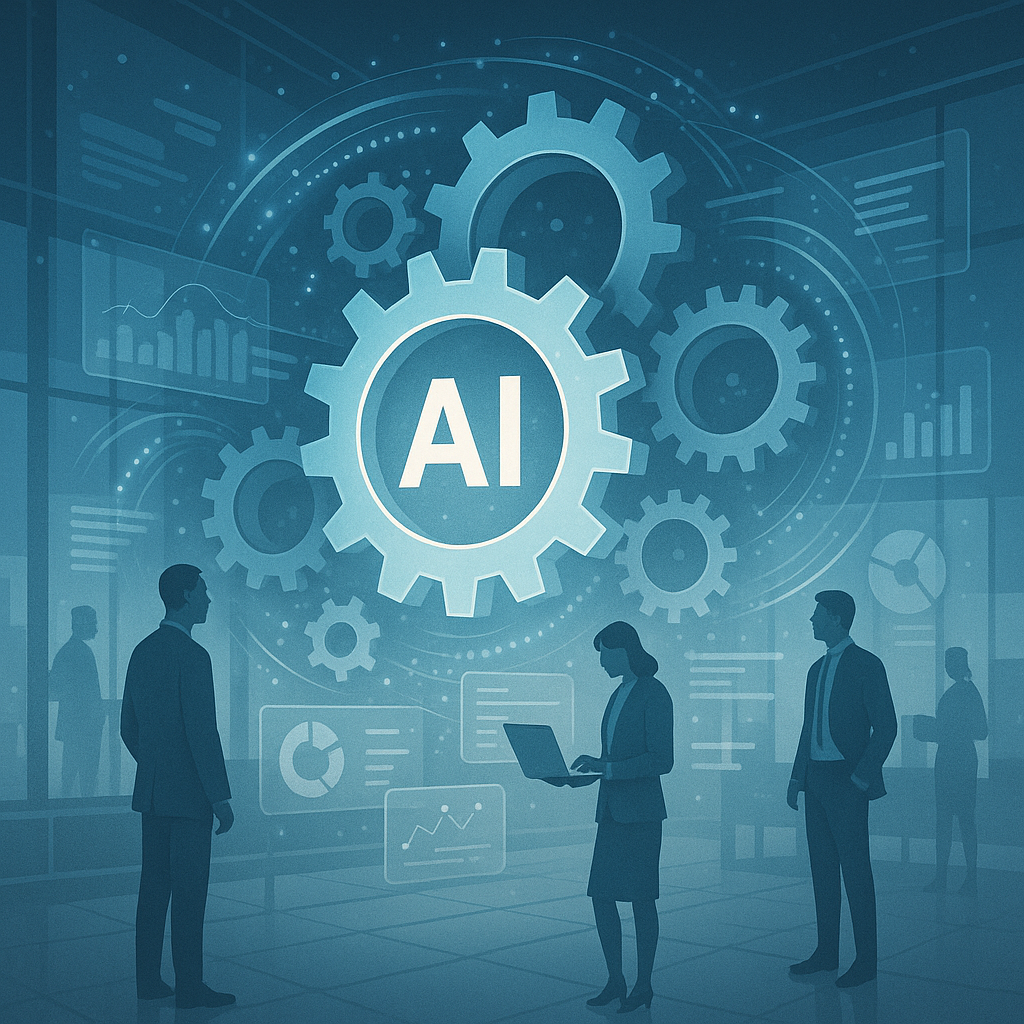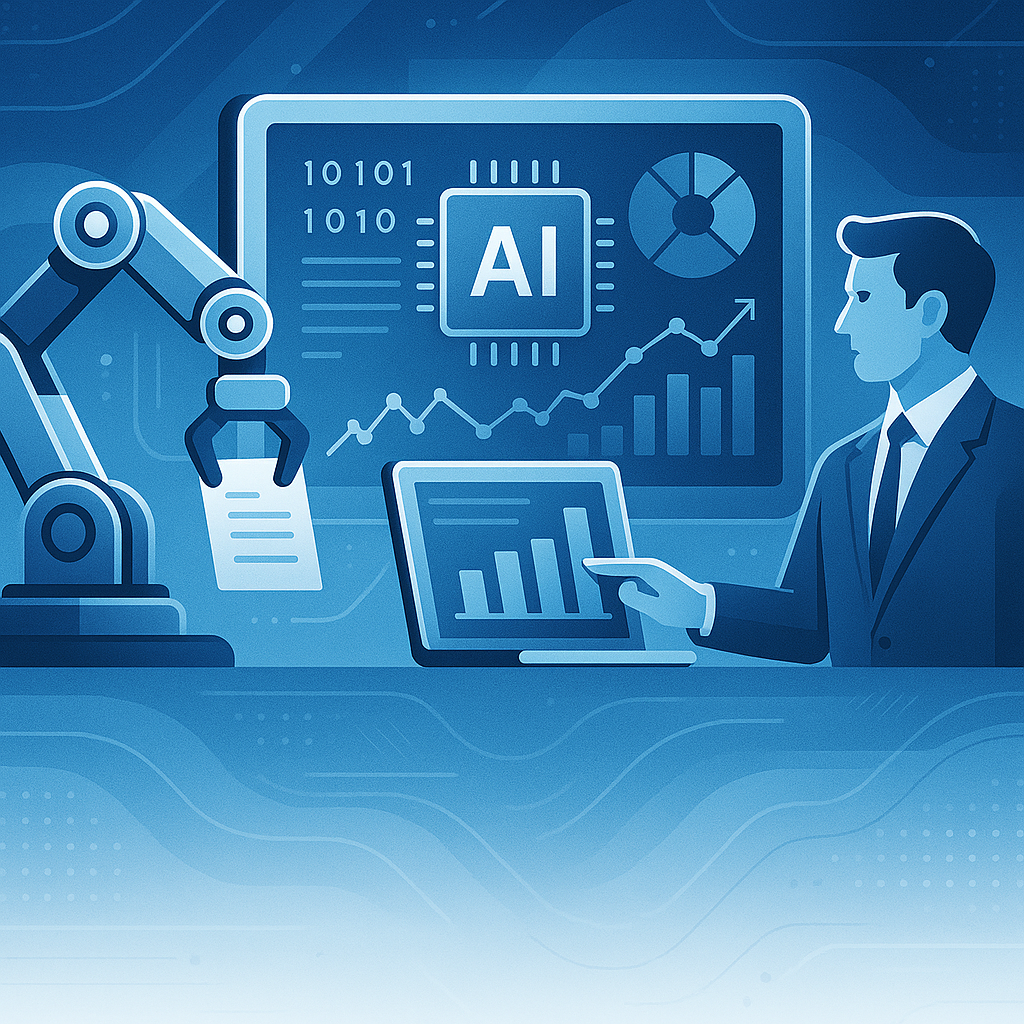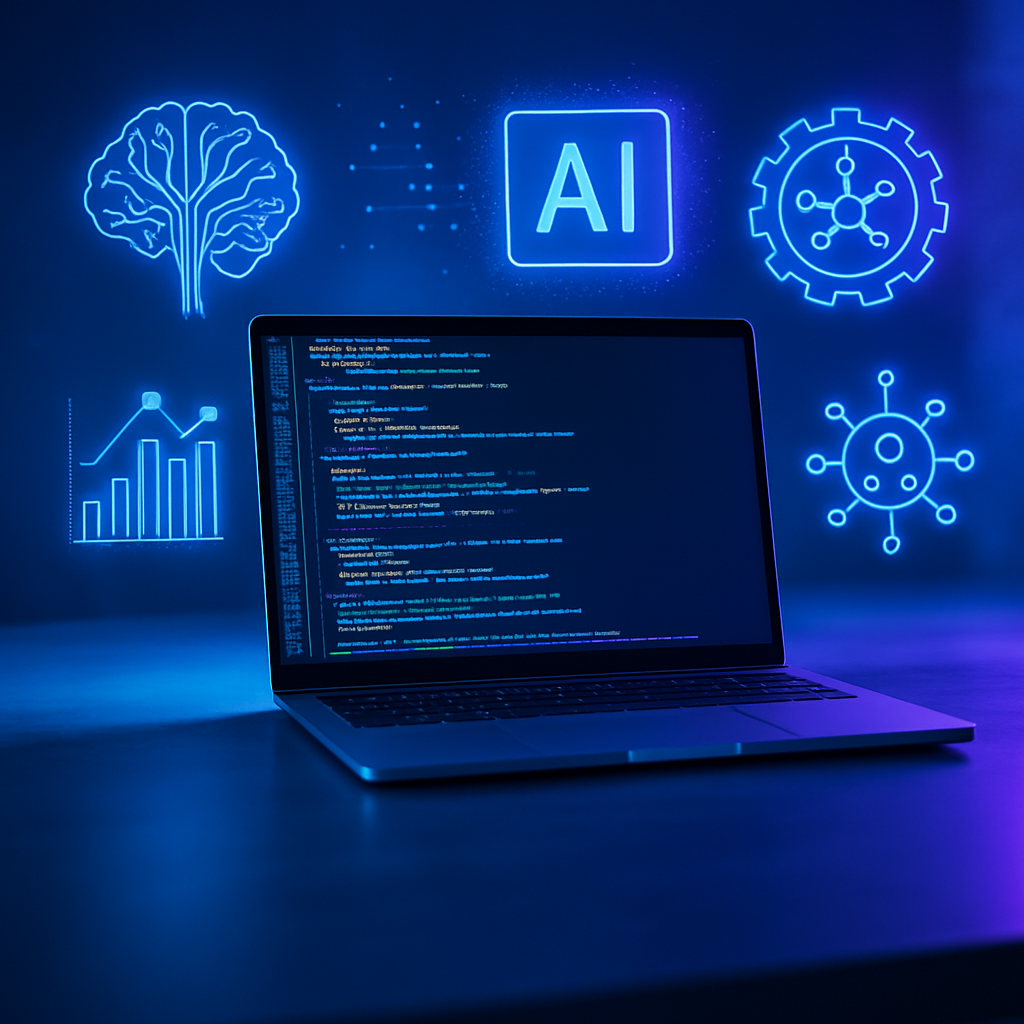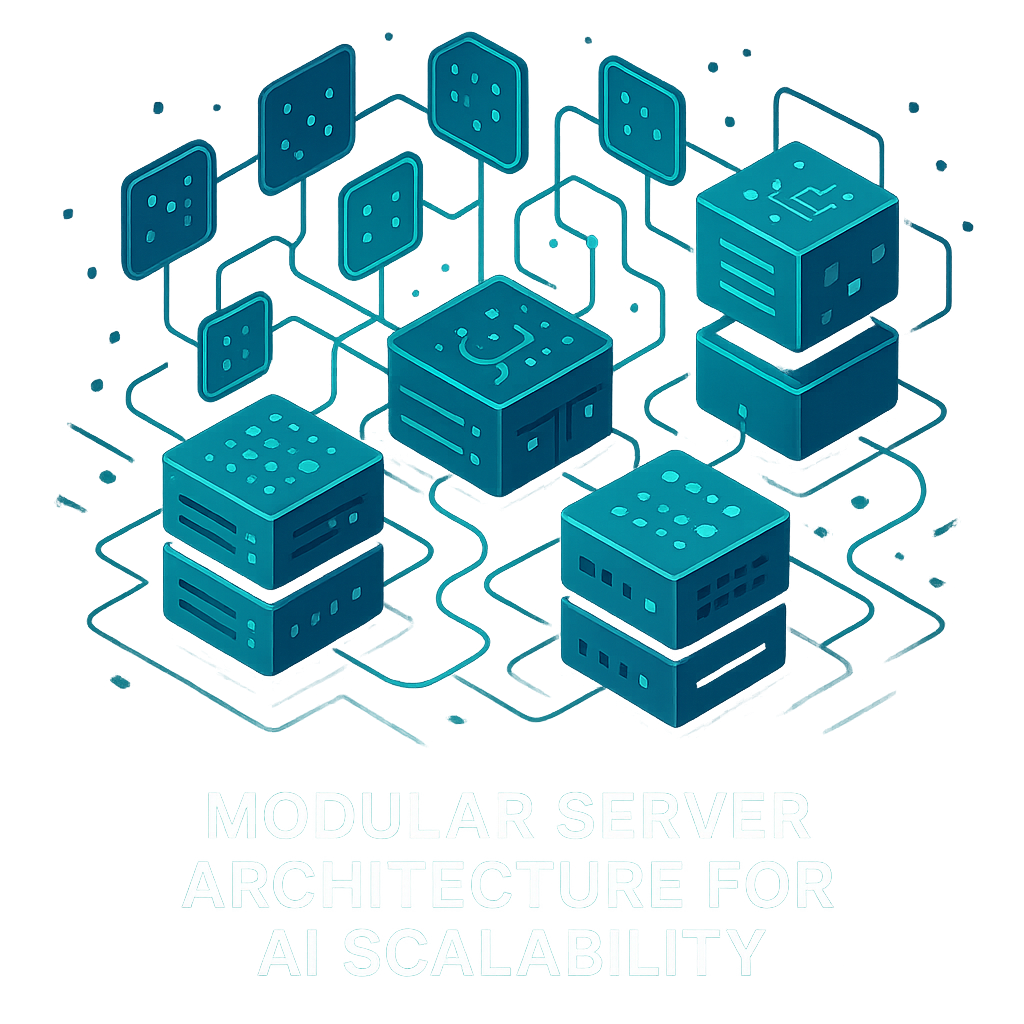How AI Solutions Transform Business Operations and Boost Efficiency

How AI Solutions Transform Business Operations and Boost Efficiency
Artificial intelligence solutions are changing the game for businesses everywhere. By automating routine tasks, enabling data-driven decisions, and increasing overall efficiency, these technologies are helping organizations of all shapes and sizes. With the help of AI business intelligence and AI-powered software, companies can run faster, more accurate operations, which leads to better productivity and a real competitive advantage.
Introduction
In today's fast-paced world, AI solutions and artificial intelligence solutions have become essential for modern business transformation. Whether you're a global corporation or a specialized small business, AI business intelligence and AI-powered systems can help you automate workflows, decode huge datasets, and make smarter decisions in less time. Industry reports suggest that integrating AI can boost operational efficiency by as much as 30%. This drastically cuts costs and reduces human error, opening up new paths for strategic growth.
As companies all over the world look for that competitive edge, picking the right AI solutions company, whether you need a custom, bespoke, or enterprise-level system, is key to unlocking real, measurable results.
Artificial Intelligence (AI) is no longer just a futuristic concept—it has become a core driver of business transformation in 2025. From automating repetitive tasks to enabling predictive analytics, AI is reshaping how companies operate, scale, and compete. Organizations that successfully integrate AI business solutions gain not only efficiency but also agility and a competitive edge. Let’s explore the key areas where AI is making the biggest impact.
Automating Repetitive Tasks and Workflows
One of AI’s strongest suits is its ability to handle time-consuming, repetitive tasks that traditionally required manual effort. By deploying AI-powered automation and robotic process automation (RPA), businesses can streamline routine operations, reduce errors, and boost productivity.
Examples of automated workflows include:
- Data entry and validation across multiple systems.
- Invoice processing, reconciliation, and recordkeeping.
- Sorting, tagging, and filtering emails at scale.
- Handling customer queries 24/7 through AI chatbots.
Companies adopting these solutions free up employees from repetitive “grunt work,” allowing them to focus on more strategic and creative initiatives. The result is a leaner, faster, and more accurate business process environment that minimizes costly bottlenecks and reduces the risks of human error.
Empowering Data-Driven Decisions
AI has transformed how businesses make decisions by turning vast amounts of raw data into actionable insights. Business intelligence AI platforms can analyze both structured (databases, sales records) and unstructured data (emails, social media, documents) to reveal trends and opportunities that humans might overlook.
Key benefits of AI-driven decision-making include:
- Sales forecasting – Predicting pipeline risks, potential close rates, and revenue outcomes with greater accuracy.
- Customer behavior analysis – Using predictive analytics to craft smarter marketing campaigns and improve customer targeting.
- Inventory management – Anticipating demand fluctuations and maintaining optimal stock levels to avoid shortages or overstocking.
By automating the collection, preparation, and analysis of data, AI allows leaders to make faster, more confident decisions. These predictive insights don’t just influence today’s strategies—they prepare businesses for what customers and markets will do next.
Enhancing Customer Experience
Customer expectations are at an all-time high, and AI is helping businesses deliver personalized, responsive, and proactive experiences. Machine learning models can analyze customer interactions and preferences to offer tailored recommendations and support at scale.
Examples of AI enhancing customer engagement:
- E-commerce virtual shopping assistants that guide buyers through personalized product journeys.
- Email marketing campaigns that adapt content and offers based on past customer behavior.
- Churn prediction models that identify at-risk customers and trigger targeted retention efforts.
By deploying AI-driven personalization and support systems, companies not only improve customer satisfaction but also increase loyalty and lifetime value. Businesses that master this personalization gain a competitive advantage in retaining customers in crowded markets.
Streamlining Operations & Reducing Costs
Beyond front-end improvements, AI is transforming operational efficiency across industries. Through smart process optimization, organizations can save time, cut costs, and ensure compliance without compromising quality.
Operational benefits include:
- Lowering the cost and time of routine business operations.
- Improving compliance and accuracy in accounting, HR, and cybersecurity processes.
- Adjusting to market shifts or operational risks in real time with intelligent monitoring.
AI also strengthens operational resilience by helping businesses adapt faster to disruptions, whether in supply chains, finance, or IT infrastructure.
Workflow Automation: The Next Step
Modern AI workflow automation tools take process optimization a step further by orchestrating entire systems of tasks. Leading AI development services now provide platforms where workflows are automated from start to finish, integrating data, communication, and decision-making in a seamless loop.
Common AI-driven workflow automations include:
- Scheduling and resource allocation for projects, logistics, or staff.
- Automated responses to repetitive customer and employee questions.
- Continuous system monitoring across production, IT, or logistics, with instant alerts for anomalies.
This not only drives higher productivity but also frees up teams to focus on strategic growth, creativity, and innovation. With AI as a foundation, businesses can achieve a balance between operational efficiency and long-term scalability.
👉 In short, the impact of AI on business operations goes far beyond cost savings—it’s about unlocking smarter, more adaptive ways of working. Companies that embrace AI today are building the foundation for tomorrow’s data-driven, customer-first, and highly resilient enterprises.

AI Business Intelligence vs. Traditional Software Solutions
In the past, businesses relied heavily on traditional software solutions for reporting and analytics. These tools—such as spreadsheets, static dashboards, and legacy ERP systems—provided valuable insights, but they were often limited to historical data and required significant manual effort. While useful for tracking performance, they lacked the ability to adapt quickly to changing market dynamics or predict future outcomes.AI-powered business intelligence (BI) has transformed this landscape. Instead of simply describing what has already happened, AI-driven platforms analyze massive volumes of structured and unstructured data in real time, uncovering patterns and predicting future trends. This shift from descriptive to predictive and prescriptive analytics enables companies to act proactively rather than reactively.
Traditional Software SolutionsAI Business Intelligence Platforms
- Automate data collection, cleaning, and transformation, reducing human error.
- Deliver real-time analytics, empowering faster and more accurate decisions.
- Handle unstructured data such as images, text, and customer interactions.
- Use machine learning and predictive modeling to forecast trends and recommend actions.
For modern businesses, adopting AI-driven business intelligence solutions isn’t just an upgrade—it’s a competitive necessity. Companies that continue to rely only on traditional tools risk falling behind competitors who are already leveraging predictive insights and intelligent automation.
- Depend heavily on human input for data preparation and reporting.
- Provide static insights that are often outdated by the time decisions are made.
- Struggle with large, unstructured datasets like social media posts or customer feedback.
- Limited flexibility—most tools require IT intervention for customization
Choosing the Best AI Solutions Company
When you're looking for a top AI solutions provider, here's what to keep in mind:
- Domain expertise: Do they understand your industry, like finance, healthcare, or ecommerce?
- Customization capabilities: Can they build custom AI solutions, or do they only offer pre-packaged software?
- Integration skills: How good are they at fitting AI into your existing platforms and software?
- Global reach: Can they support you in specific regions like the USA, Europe, or Asia-Pacific?
- Reputation/reviews: What do their past clients say? Look for success stories and reviews.
When looking for development partners, The Ninja Studio stands out for its ability to deliver bespoke AI solutions designed for each client's specific goals. They offer expert AI-powered software development and smooth integration for companies of all sizes.
Off-the-Shelf vs. Custom AI Solutions
- Off-the-shelf AI: Pros — Fast deployment, lower upfront cost, proven features; Cons — Limited customization, less competitive edge
- Custom AI solutions: Pros — Tailored for business processes, scalable, greatest ROI; Cons — Higher investment, longer deployment
Custom AI business solutions North America and enterprise AI solutions Germany are gaining a lot of traction because they can be adapted to fit local rules and regulations perfectly.
AI Solutions for Small Businesses (SMBs)
You don’t need to be a corporate giant to benefit from AI. In fact, small and medium-sized businesses (SMBs) are some of the biggest winners of this technology revolution. Thanks to affordable and specialized AI tools, SMBs can automate processes, improve customer engagement, and scale operations without massive overheads.
Benefits of AI for SMBs include:
- Affordable automation that reduces repetitive workloads.
- Scalable intelligence that adapts as the business grows.
- Better customer engagement through chatbots, personalization, and analytics.
This leveling of the playing field allows smaller companies to compete globally, delivering the same quality of service and efficiency as larger enterprises. SMBs can also tap into region-specific solutions, such as AI app development services in Australia, AI solutions in India, or custom AI platforms in Singapore, which are fine-tuned to local market needs and regulations.
AI Security and Compliance
Security is one of the most important considerations when deploying AI solutions. A responsible provider ensures that AI is not just powerful but also secure and compliant with global standards.
Core security and compliance features include:
- Data encryption and privacy protections to safeguard sensitive information.
- Regulatory compliance with laws such as GDPR (Europe), HIPAA (healthcare), and CCPA (California).
- Continuous threat monitoring powered by AI to detect and respond to anomalies in real time.
With an AI-powered approach to cybersecurity risk assessment, businesses can cut response times dramatically, reduce the impact of potential threats, and ensure uninterrupted operations.
Costs and ROI of Custom AI Solutions
The cost of implementing AI varies widely, depending on the complexity of the solution and the level of customization required. A simple robotic process automation (RPA) system is far less resource-intensive than a full AI-powered business intelligence platform.
Factors that influence AI costs include:
- The complexity of the solution.
- The extent of customization required.
- Integration needs with existing systems.
- Ongoing support and maintenance.
While the upfront investment can seem high, custom AI solutions often pay for themselves quickly. Businesses typically see reduced process costs, improved efficiency, and lower risk exposure—leading to a positive return on investment (ROI) within just a few months.
Industries That Benefit from AI Software Solutions
AI is transforming industries across the globe, creating smarter, faster, and more efficient operations.
Examples include:
- Finance – Fraud detection, risk analysis, and investment optimization.
- Healthcare – AI-assisted diagnostics, patient engagement tools, and automated scheduling.
- Retail & E-commerce – Personalized shopping experiences, inventory management, and supply chain optimization.
- Manufacturing – Predictive maintenance, quality control, and optimized production planning.
- Transportation & Logistics – Route optimization, real-time shipment tracking, and fleet management.
- Professional Services – Data analysis, client relationship management, and task automation.
Top AI solution providers both global and local now offer specialized tools designed to address the unique needs and compliance requirements of each industry. This ensures that AI isn’t just a one-size-fits-all solution but a strategic asset tailored to every sector.
Conclusion
The power of AI solutions for business is undeniable. It's reshaping the competitive landscape by automating workflows, cutting costs, generating sharp business intelligence, and creating amazing customer experiences. Whether you need integrated AI for a big enterprise or scalable tools for a small business, working with an expert like The Ninja Studio ensures you can take full advantage of these technologies safely and effectively.
Investing in artificial intelligence ai solutions gives organizations everywhere, from North America to Europe and Asia, the ability to streamline their operations, become more efficient, and truly succeed in today's digital world.
Frequently Asked Questions
How can AI solutions improve business efficiency?
AI solutions boost efficiency by automating tasks that are typically repetitive, offering real-time insights from data, and fine-tuning workflows. This all leads to faster operations, reduced costs, and a big jump in productivity.
What are the benefits of artificial intelligence solutions?
The main benefits include automation of manual processes, smarter decision-making based on data, fewer errors, significant cost savings, and the ability to offer personalized experiences to your customers.
How to choose the best AI solutions company?
Look for a company's experience in your specific industry, their ability to create custom solutions, their skills in integrating with your existing systems, and what their past clients have to say about them.
Why use AI for business intelligence?
AI takes business intelligence to the next level. It enables predictive analytics, finds hidden patterns in massive datasets, and provides clear, actionable recommendations that guide better strategic and tactical decisions.
How does AI impact business decisions?
AI provides a much faster and more accurate analysis of business data. This empowers leaders to make smarter, more informed decisions that are crucial for staying ahead of the competition.
Can AI solutions be customized for my business?
Absolutely. Custom and bespoke AI solutions are specifically designed to align with your unique business needs, internal processes, and industry-specific requirements for the best possible fit.
Is AI suitable for small businesses?
Yes, it is. There are now specialized AI solutions designed for SMBs that are both affordable and scalable, allowing smaller companies to enjoy the same benefits of automation and efficiency as larger enterprises.
What is the difference between AI and business intelligence?
Think of it this way: business intelligence focuses on analyzing past data to give you a clear picture of what happened. AI, on the other hand, uses machine learning to simulate human-like reasoning, adapt over time, and predict future outcomes.
What makes an AI solution effective?
An effective AI solution is one that provides precise automation, delivers insights you can act on, can scale as your business grows, integrates smoothly with your current tools, and is closely aligned with your overall business goals.
How to implement AI solutions in existing software?
Implementation usually involves integrating AI modules or APIs directly with your current systems. The key is to ensure that the data flows correctly between them and that your team is trained and ready to adopt the new tools.

%201.png)


.svg)




.svg)
